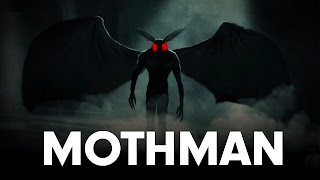Literature Review #1
Citation:
Edwards, Emily D. “Morbid Curiosity, Popular Media, and Thanatourism.” Australian Journal of Parapsychology, vol. 20, no. 2, Dec. 2020, pp. 113–138. EBSCOhost, search.ebscohost.com/login.aspx?direct=true&db=aph&AN=147786411&site=ehost-live.
Key Terms:
- Perceptual Curiosity is the fascination around one’s own environment as well as the desire to experience things in one’s own life.
- Epistemic Curiosity is the fascination around knowledge one can’t learn directly through their experiences or sensing one’s environment.
- Normal Curiosity is the natural desire to intentionally seek out new knowledge and experiences.
- Morbid Curiosity is an abnormally strong desire in violent and gruesome knowledge and experiences that are irrelevant to one’s own life.
In the article, Morbid Curiosity, Popular Media, and Thanatourism, the author, Emily D. Edwards, talks about how perceptual and epistemic curiosity work with normal and morbid curiosity to generate interest in the dark and paranormal, and how curiosity interacts with the media to further this interest. The author also mentions the role our own lives play in our interest in such tourist destinations, and how they can serve to better understand ourselves. She goes into a few specific examples of paranormal tourism and the media, such as the Winchester House and the 2018 movie, Winchester.
Emily D. Edwards is currently a professor at the University of North Carolina: Greensboro in their Media Studies department. She also has worked various jobs for both NBC and ABC, produced or directed over sixteen films, and published articles on filmmaking, popular music, occult and popular culture. She has written chapters for several books about these same topics and written her own book on the occult in pop culture. Her article focuses on how media like movies and newscasts affect people’s thoughts and feelings on paranormal tourist destinations.
This article talks about the motivations people have in going to locations of dark or paranormal tourism, and it also goes into the roles that media play in these motivations. This is exactly what I planned on looking into for my research, and while the article focuses on real tragedies and haunted locations, I believe the rationale could be easily applied to other forms of paranormal tourism.
Quotes:
Quotes:
- “The argument is that the thriving influence of popular media from the last century into the new millennium promotes and makes legends of tragic places like the Winchester Mansion, increasing name recognition and visitor interest” (Edwards 115)
- “Media priming occurs when popular culture stories focus on certain aspects or emphasize some things and ignore others” (Edwards 115).
- “Conventional wisdom suggests that in bleakly dangerous times, the enthusiasm for tragic locations and their dark stories should disappear. However, the appeal of the morbid seems to endure even when grim circumstances profoundly change lives” (Edwards 118).


I saw this interesting dissertation through the Rutgers library site:
ReplyDeleteMcGinnis, Shelley E. Dallas, Roswell, Area 51: A Social History of American “conspiracy Tourism.” ProQuest Dissertations Publishing, 2010.